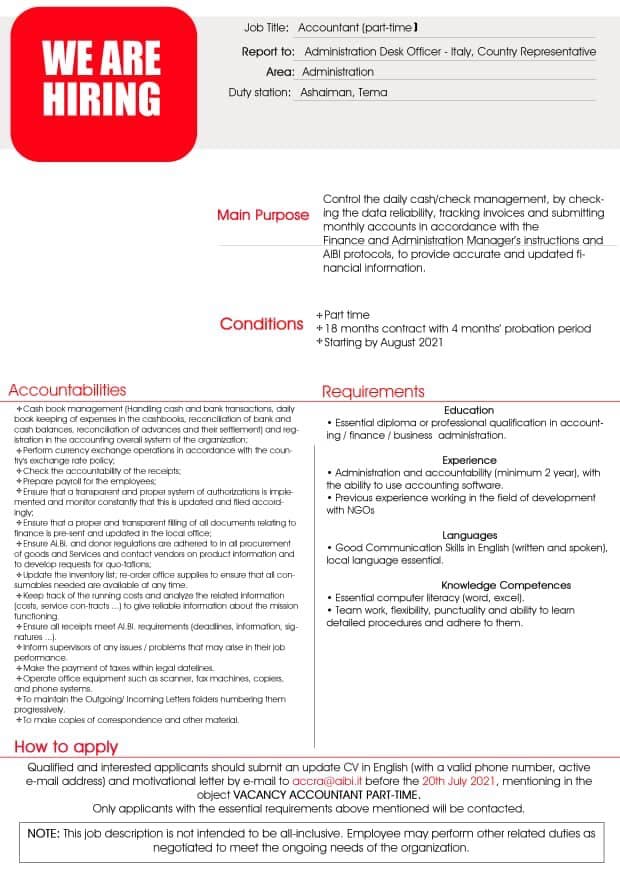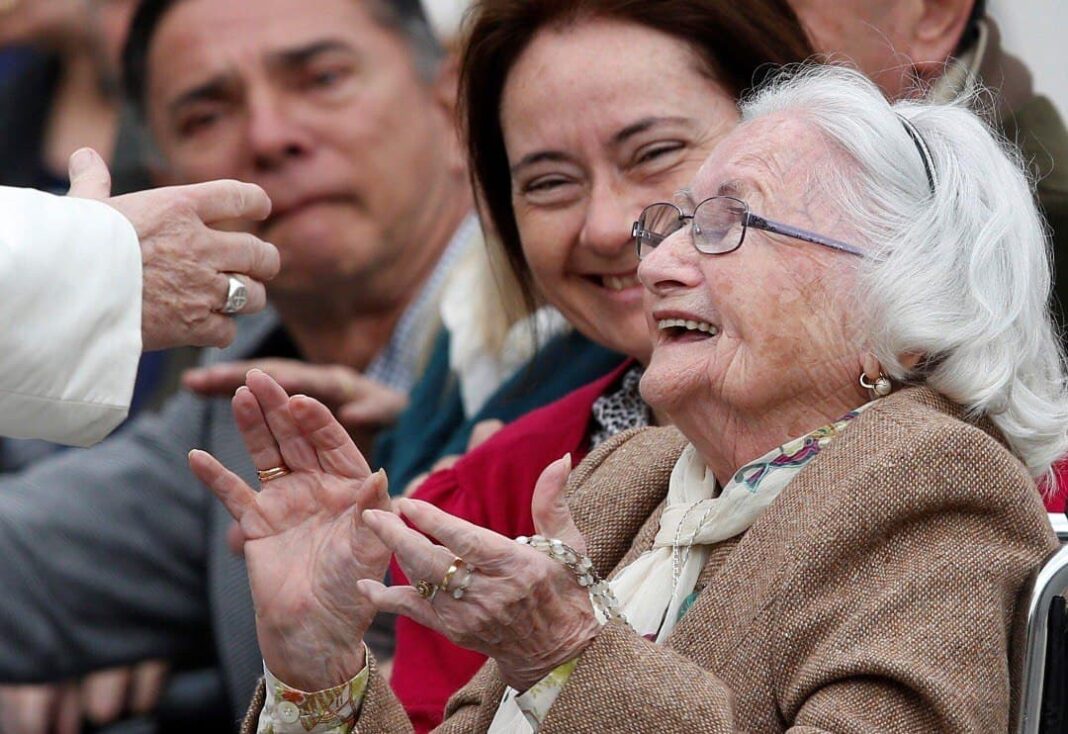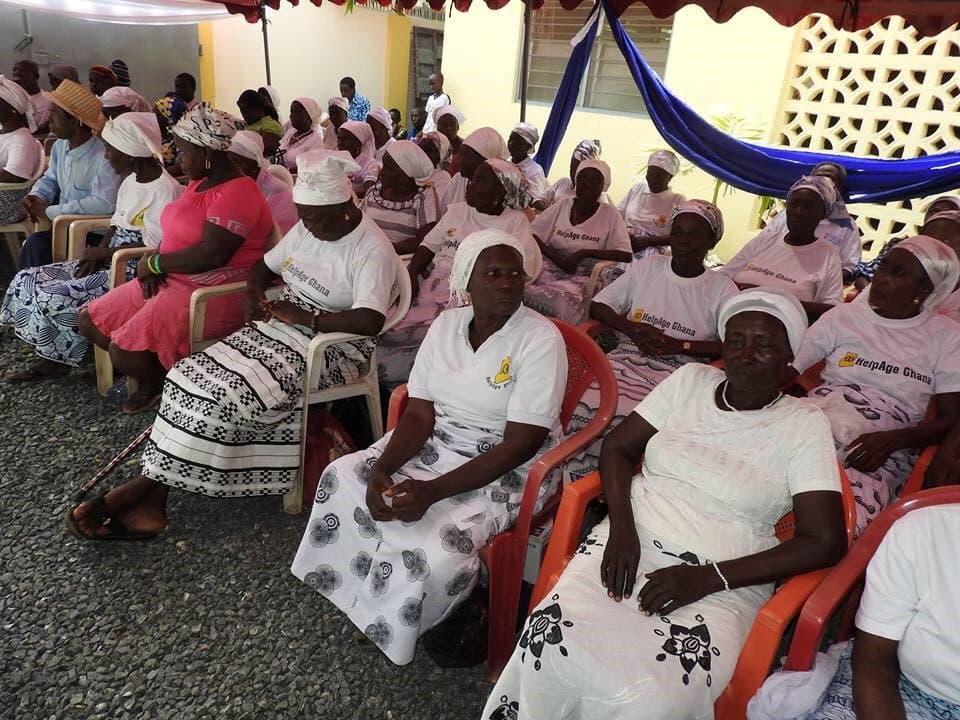Ageing is becoming an issue that requires serious attention than it had so far received. Ghana is known worldwide as a leading hospitable nation. Almost all manner of persons in Ghana and abroad are treated with lots of honour. While in time past, courtesy and honour given to the aged is fast fading off.
According to Ghana’s 2010 National Ageing Policy, one of the major concerns of older persons in Ghana is the absence of a comprehensive, coherent and well-articulated policy document on ageing. There is unprecedented increase in the number of older persons globally, continentally and nationally. In fact, available statistics show similar trends in all regions and districts of Ghana.
Of course, ageing is becoming an issue, which requires serious attention than it had so far received. As the Catholic Church will mark the World Day of Grandparents and Elderly on every fourth Sunday of July, Ghana as a nation on every October 1 joins the rest of the world to mark the International Day of Older Persons to raise awareness on issues affecting the elderly.
On January 31, 2021, the Leader of the Catholic Church, His Holiness Pope Francis announced the establishment of a World Day of Grandparents and the Elderly as a reminder of the important role they play as a link between generations.
The World Day, the Pope noted will be celebrated every year on the fourth Sunday of July to coincide with the feast of Ss. Joachim and Anne, Jesus’ grandparents. Thus, the first celebration of this day will be marked on Sunday, July 25, 2021.
As said by the Holy Father early this year, “It is important for grandparents to meet their grandchildren and for grandchildren to meet their grandparents because -as the prophet Joel says -grandparents, before their grandchildren, will dream and have great desires, and young people -taking strength from their grandparents -will go forward and prophesy.”
The activities of Grandparents and the elderly in general remind us that old age is a gift and that they are the link between generations, passing on the experience of life and faith to the young.
It is therefore lamentable that Grandparents and the elderly are often forgotten; hence, the yearly event in my candid opinion is indeed a gift to the universal church and society at large. In his Encyclical, ‘Fratelli Tutti,’ the Holy Father reminds all that no one is saved alone and with this in mind, it behoves on us to treasure the spiritual and human wealth that has been handed down from generation to generation.
It is a fact that older persons make wide-ranging contributions to economic and social development but unfortunately, economic situations had made it difficult for children to give proper care to their aged parents, leaving them in loneliness.
Discrimination and social exclusion had persisted and as said once by the Former United Nations Secretary-General, Ban Ki-moon, this bias needs to be overcome in order to ensure a socially and economically active, secure and healthy ageing population.
On December 14, 1990, the United Nations General Assembly (by resolution 45/106) designated October 1 as the International Day of Older Persons. This was preceded by initiatives such as the Vienna International Plan of Action on Ageing – which was adopted by the 1982 World Assembly on Ageing – and endorsed later that year by the UN General Assembly.
In 1991, the General Assembly (by Resolution 46/91) adopted the United Nations Principles for Older Persons.
In 2002, the Second World Assembly on Ageing adopted the Madrid International Plan of Action on Ageing, to respond to the opportunities and challenges of population ageing in the 21st century and to promote the development of a society for all ages.
Information from the Ghana Statistical Service showed that life expectancy at birth had increased to 60.7 years for males and 61.8 years for females and that life expectancy at the age of 60 had been estimated at 17.03 for males and 19.49 years for females.
The information indicated that persons in the country were expected to live up to 77.03 years adding that the 2010 Census results indicated that the population of persons 60 years and above had increased to 1,643,978 representing 6.7 per cent of the total population.
Following former UN Secretary-General Ban Ki- moon’s message during one of the International Day of Older Persons, he said older persons are playing an increasingly significant role in society as they grow in number and as health care improves in some parts of the world. Such a major demographic change presents huge challenges.
The International Day of Older Persons aims to raise awareness of the impact of an ageing population and the need to ensure that people can grow old with dignity and continue to participate in society as citizens with full rights.
The number of older persons is expected to be more than double, globally, from 841 million people in 2013 to more than 2 billion in 2050. By that year, nearly 8 in 10 of the world’s older population will live in the less developed regions.
The steady increase in human longevity represents one of the greatest transformations and challenges of our time. However, failure to keep pace with changing demographic trends will make it difficult to achieve a sustainable, secure and fulfilling future for people of all ages.
Older persons make wide-ranging contributions to economic and social development. However, discrimination and social exclusion persist. We must overcome this bias in order to ensure a socially and economically active, secure and healthy ageing population.
Available data, however, indicates that the number of persons over 60 will increase from about 600 million in 2000 to almost 2 billion in 2050 and the proportion of persons defined as older is projected to increase globally from 10 percent in 1998 to 15 percent in 2025. The increase will be the greatest and most rapid in developing countries where the older population is expected to quadruple during the next 50 years.
In Africa, the proportion is expected to double by 2050. In sub-Saharan Africa, where the struggle with HIV and AIDS pandemic and with economic and social hardship continues, the percentage is expected to reach half the level. Such a demographic transformation has profound consequences for every aspect of individual, community, national and international life.
It is evident that population ageing will become a major issue in developing countries which are projected to age swiftly in the first half of the twenty-first century. The proportion of older persons is expected to rise from 8 to 19 percent. The fastest growing group of the older population is the oldest old, that is, those who are 80-years-old or more.
In 2000, the elderly numbered 70 million and their numbers are projected to increase to more than five times than over the next 50 years. Another major demographic difference relates to gender. Older women outnumber older men. The gender dimension of *the* ageing must be a priority for global and national policy action.
There are also rural and urban demographic differences in ageing. Currently, an overwhelming proportion of older persons in developed countries live in areas classified as urban while the majority of older persons in developing countries live in rural areas. This trend is expected to continue in the future.

In Ghana, the situation is not very different.
Available statistics from the population census of 2000 and other surveys on population indicate that the majority of people in Ghana (64%) live and work in rural areas where the greater proportion of older persons also reside. Available data also indicate that older persons aged 65 years and above constitute 5% of the Ghanaian population (GSS, 2002). This figure is among the highest in Africa. Most of these elderly persons reside in rural areas.
There is also evidence to show that the aged in Ghana has been increasing over the years. The 2000 Population and Housing Census Report indicate that the proportion of the elderly (65 years and above) formed 5.3 per cent of the population, an increase from 4.0 per cent in 1984. The percentage increase of the aged population between 1960 and 1970 was 12.5 per cent.
Over the next 50 years, the number of older persons in the world will grow from about 600 million to almost two billion. Today, one person in ten is aged 60 or over by 2050, this will be one person in five, and by 2150, one in three. Older people make major contributions to society, through volunteer work, transmitting experience and knowledge, helping their families with caring responsibilities and participating in the paid labour force.
According to the Ghana 2010 Population Housing Census (PHC) Report, globally, one in nine persons is at least 60 years old, and the number of older persons continues to rise in all Regions. The number of older persons is projected to reach one billion in less than ten years. In 2000, there were already more people aged 60 or over than children under five.
The PHC Report indicates that the population of the elderly in Ghana has increased seven-and-half times (770%) from 1960 (213,477 to 2010 (1,643,381), constituting 6.7 percent of the total national population in 2010 compared with 4.5 percent in 1960.
In Africa, old age goes with wisdom and store of knowledge. However, in Ghana and other parts of the world, ageing is becoming a problematic social matter in the areas of recognition and honour in public and even at home. By law, at 60, all persons in public service in Ghana must give way to the young ones.
There are many Non-Governmental Organisations helping to bring joy to the faces of the aged but there is more room for improvement. Help Age Ghana, the Society of St. Vincent de Paul of the Catholic Church and the Lepers Aid Committee chaired by Very Rev. Andrew Campbell, SVD and the many others must be commended for their assistance and support they are giving to the elderly.
Individual families must help alleviate the plight of the elderly so that they could live longer while the youth also benefit from their wisdom and endeavour to pay attention to them in the areas of employment, family care, and health.
There is no doubt that most of them had been great assets to society and they need to be cared for in old age. Governments are encouraged to develop and implement comprehensive strategies to promote the welfare and rights of the aged and also put into action the National Ageing Policy.
The issue of ageing is important and a matter of concern to all who would definitely grow old. Therefore as we continue to give support to children and youth, there is the need for the government with the help of Parliament and civil society organisations in Ghana to expedite action to offer the needed assistance to ageing citizens.
Today’s generation owe it as a duty to honour and guarantee better living conditions for our older persons. We need to recognize that the society in which we live today has been built thanks to the efforts and toil of previous generations some of whom live with us and defined as older persons.
We must make the effort to provide them with efficient health care services and conducive living environment to ensure that they age actively and with adequate security and recognizable dignity.




